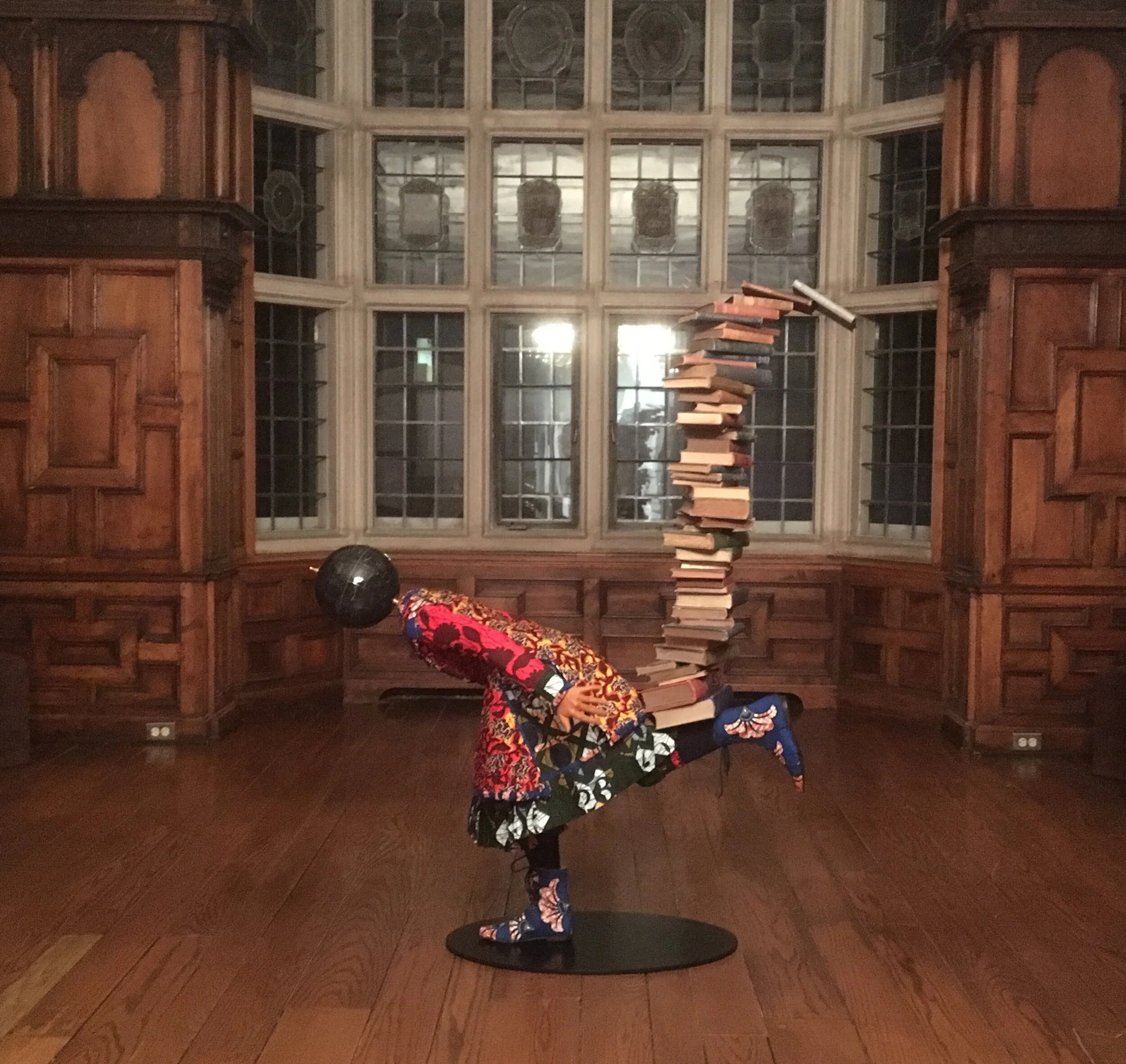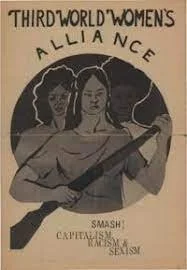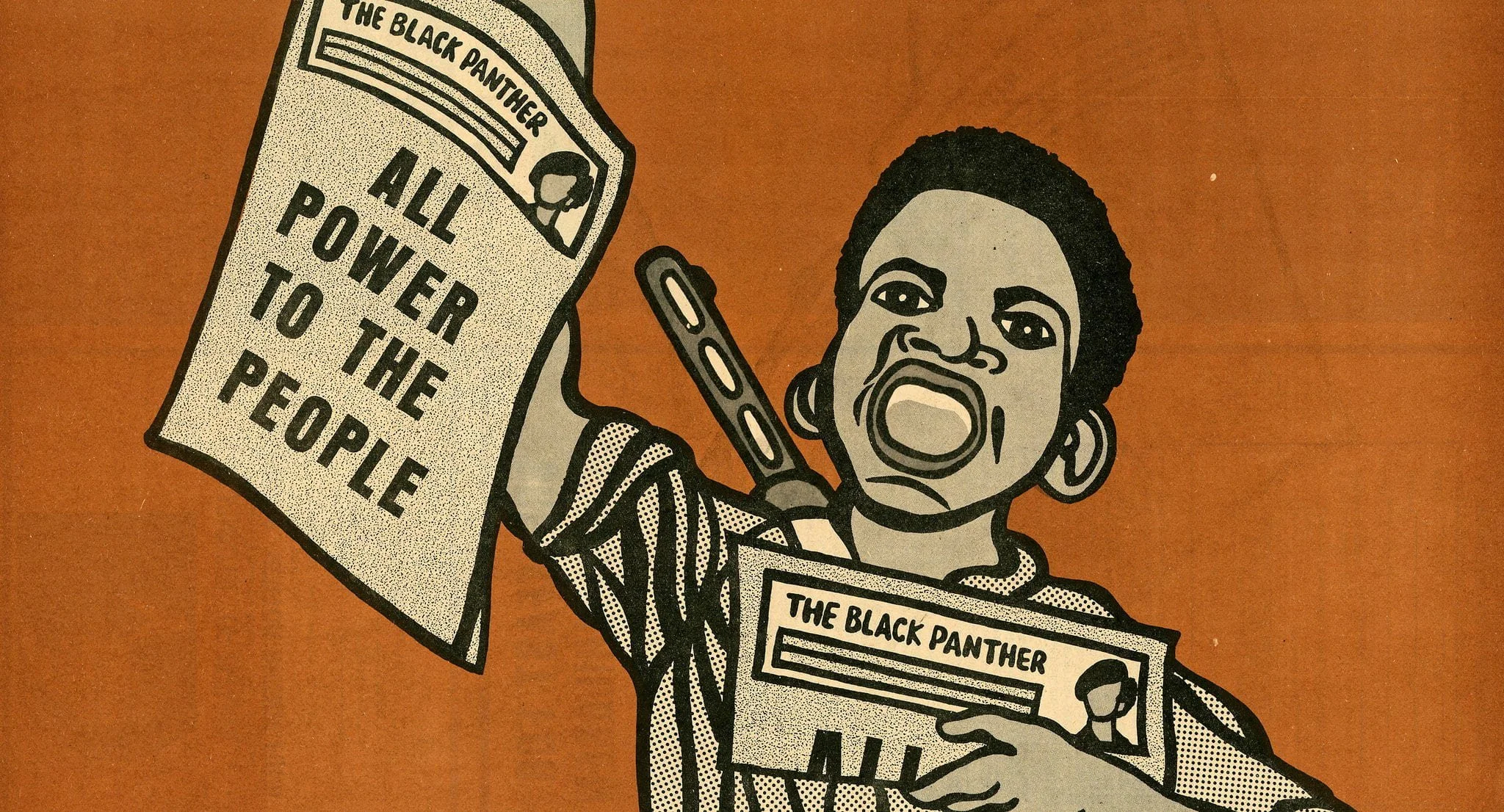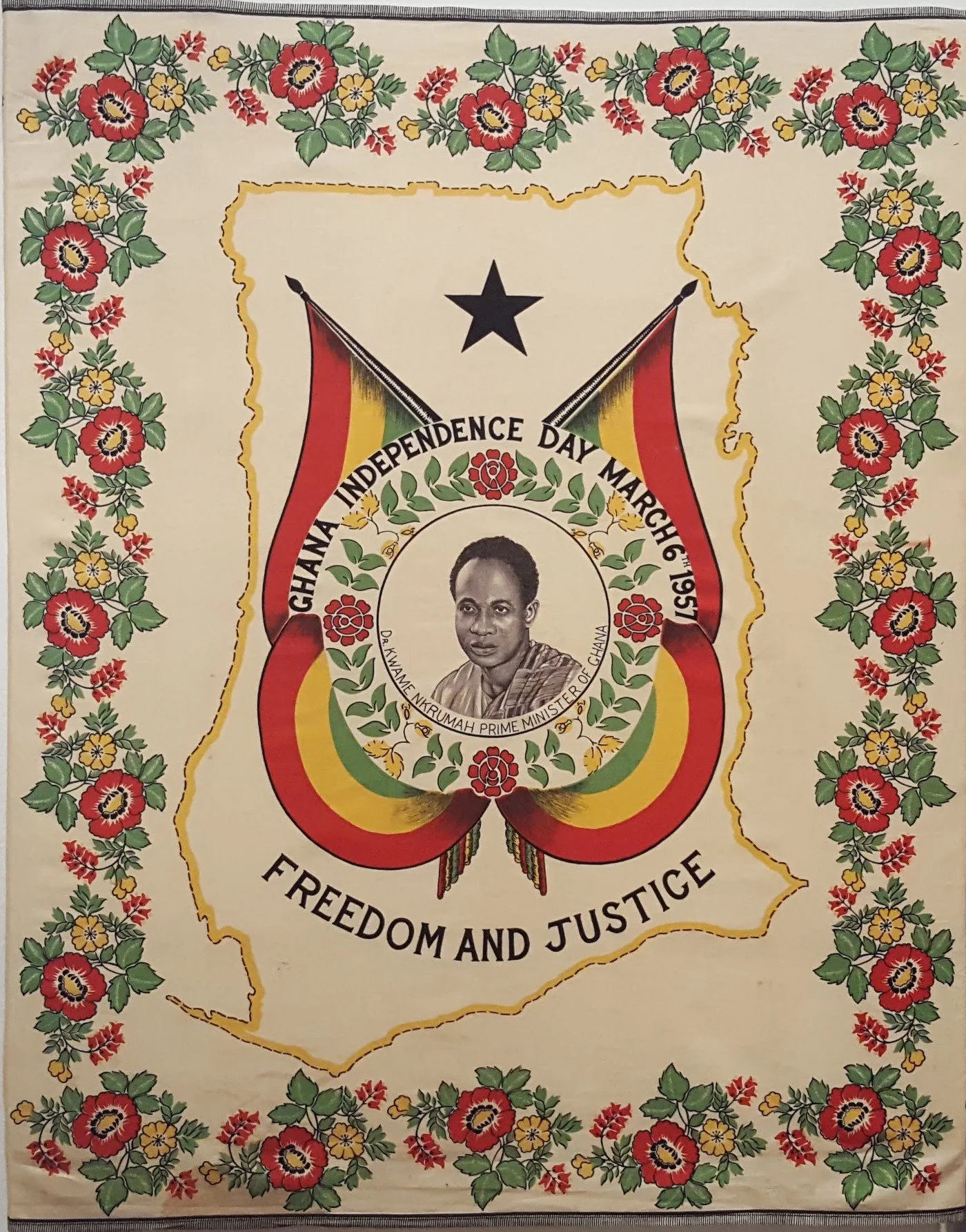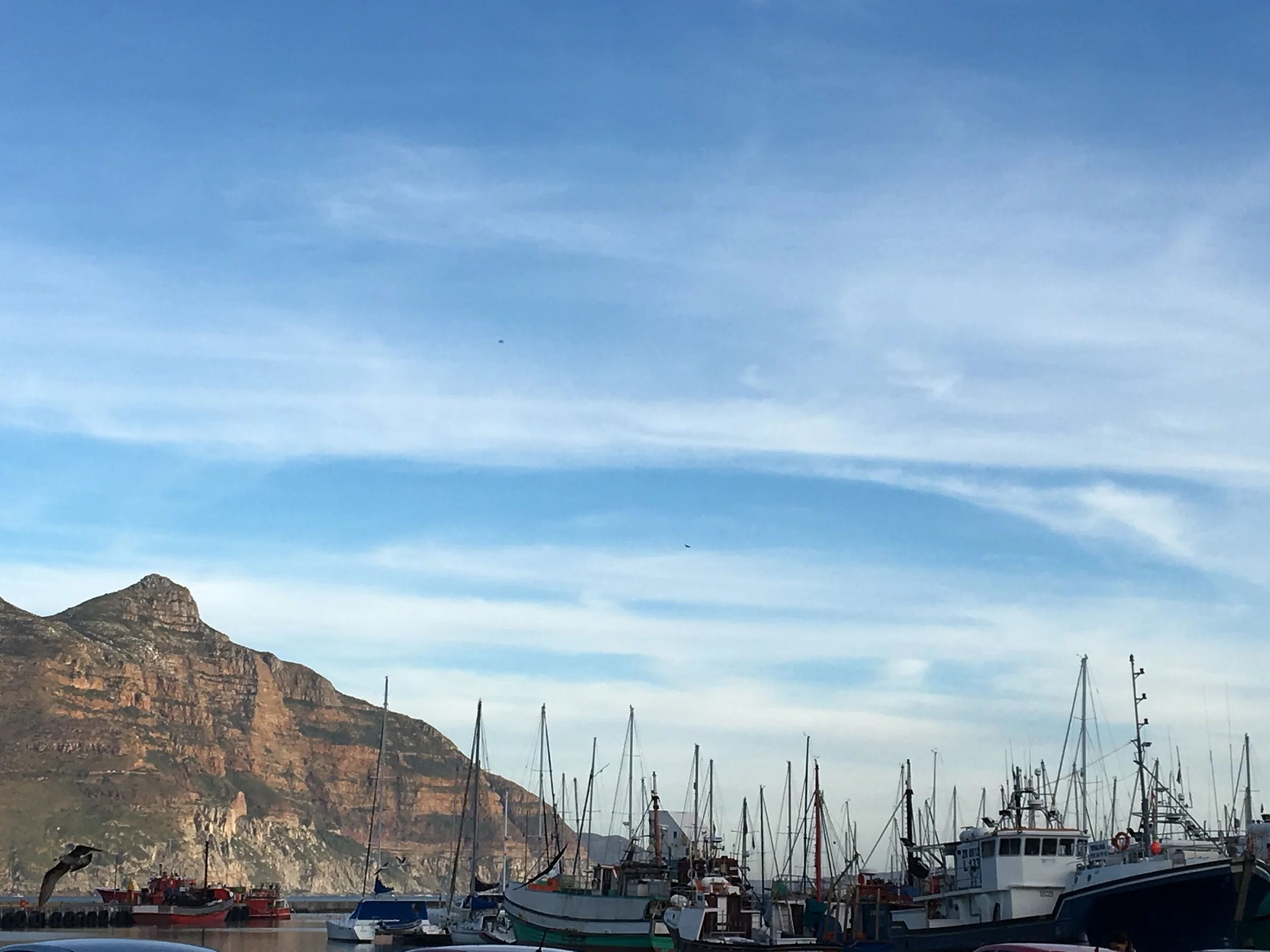Recent Courses
For a full list of courses taught and workshops facilitated, please see my CV.
Postcolonial Literatures:
Archives of Colonialism and Slavery
Yinka Shonibare, Girl Balancing Knowledge (series); Mead Art Museum, Amherst MA
The Archives of Colonialism and Slavery is a study of Anglophone literary and cultural texts that grapple with enduring forms of colonialism, imperialism, and neocolonialism. In this course, we will explore multiple cultural genres from historical fiction and poetry to performance and visual art. Our primary texts will be paired with a weekly theoretical text to broaden your knowledge in both postcolonial literature and theory. Indeed, one of our purposes will be to understand how the term ‘postcolonial’ came into being, its continued utility, and its limits for representing fully the contemporary reality for societies across the world. Further, the course has a central interest in what constitutes an archive, how creative and critical workers curate their own archives and intervene in the formal archive of the state. Toward that end, we will pay attention to the modes of representation, whether they be realist, speculative, or otherwise.
This course is cross-listed to the programs of International & Global Studies, African American and African Diaspora Studies, and Women, Gender, and Sexuality Studies.
Representative Texts
Sea of Poppies by Amitav Ghosh
Migritude by Shailja Patel
Whereas by Layli Long Soldier
Zong! by M. NourbeSe Philip
She Would Be King by Wayetu Moore
Feminist Literatures
In this course, we follow our intrepid poets, novelists, filmmakers, and critics as they investigate what speculation as practice, as ethos, as standpoint can offer us particularly when it comes to knowledge making about figures who we only know as ephemeral. We will think alongside Saidiya Hartman as she crafts her notion of “critical fabulation” and we will explore what Sara Ahmed’s concept of citational practice can teach us about how to know a history that has always been there, but not have been told that story. Among our aims will be to think about the feminist possibilities of speculation, particularly for perspectives and stories that are not archived in conventional forms, or remain marginal, possibly ephmeral, in colonial ledgers, letters, manifests; and yet, they take vivid shape in the creative practices of the artists and writers we will engage.
This course is cross-listed to the programs of International & Global Studies, African American and African Diaspora Studies, and Women, Gender, and Sexuality Studies.
Representative Texts
Undrowned: Black Feminist Lessons from Marine Mammals by Alexis Pauline Gumbs
A Map to the Door of No Return by Dionne Brand
Zom-Fam by Kama La Mackerel
House of Rust by Khadija Abdalla Bajaber
The Dragonfly Sea by Yvonne Adhiambo Owuor
Literature of Human Rights
Emory Douglas, “All Power to the People” (1969)
Literature of Human Rights draws on the the rich contributions of Black studies, postcolonial studies, and feminist studies to query the figure of the “human” and thus the conceptual terrains and histories through which the United Nations Universal Declaration of Human Rights came to exist in 1948. We will examine a number of primary source texts from conventional literary texts to political tracts such as pamphlets, petitions, and treatises. Alongside these primary sources, we’ll read theory and criticism from scholars of Black studies, postcolonial studies, and feminist studies to help us build a framework for critical interpretation of the primary source materials.
This course is cross-listed to the programs of International & Global Studies, African American and African Diaspora Studies, and Women, Gender, and Sexuality Studies.
Representative Texts
Migritude by Shailja Patel
Zong by M. NourbeSe Philips
Pumzi dir. Wanuri Kahiu
”We Charge Genocide” (1951 petition; 2014 report)
Wasafiri: “Human Rights Cultures”
Introduction to International and Global Studies
UCLA Fowler Museum exhibition, “African-Print Fashion Now! A Story of Taste: Globalization and Style”
This course offers an interdisciplinary perspective on the contemporary global world. Using analytics of postcolonialism, anticolonialism, and decolonization, we will study the formation of the current world order and focus on some of the most pressing issues of our times through a thematic focus on gender and sexuality-based social movements, migration, labor, and climate.
While our primary focus will be on the 21st century, we will always examine the present conditions from a historicist approach, which means that we will locate them within broader histories. Focusing on continuities and discontinuities, our purpose will be to understand the social, political, and economic issues of 2020 in deep relation to the recent and historical past. Our case studies will come from across the Global South (Africa, Asia, the Caribbean, and South America) and our purpose in engaging them is to understand them in their full complexity and allow for multiplicity or syncretism whenever possible, even when there are contradictions.
This course is cross-listed to the programs of International & Global Studies, African American and African Diaspora Studies, and Women, Gender, and Sexuality Studies.
Oceanic Humanities and the Global South
(Graduate)
Oceanic Humanities and the Global South explores the critical formation of the Global South as a field of cultural and political analysis. We will take a multi-genre and multi-disciplinary approach that focuses on Africa, Asia, and the Americas. One organizing feature of this course is a focus on commodities, such as sugar, tea, and textiles as well as the regimes of labor and capital that undergird their production and circulation. Another recurring thread will be about questions of the archive: what they offer, obscure, erase and how both scholars and artists attend to those gaps, silences, fissures. In these twin projects, we will orient ourselves specifically toward feminist materialist analytics for apprehending both the histories and their representations as well as how the particular tools of our knowledge formation shape the questions we ask and the research practices we engage.
This course is cross-listed to the program of Women, Gender, and Sexuality Studies.
